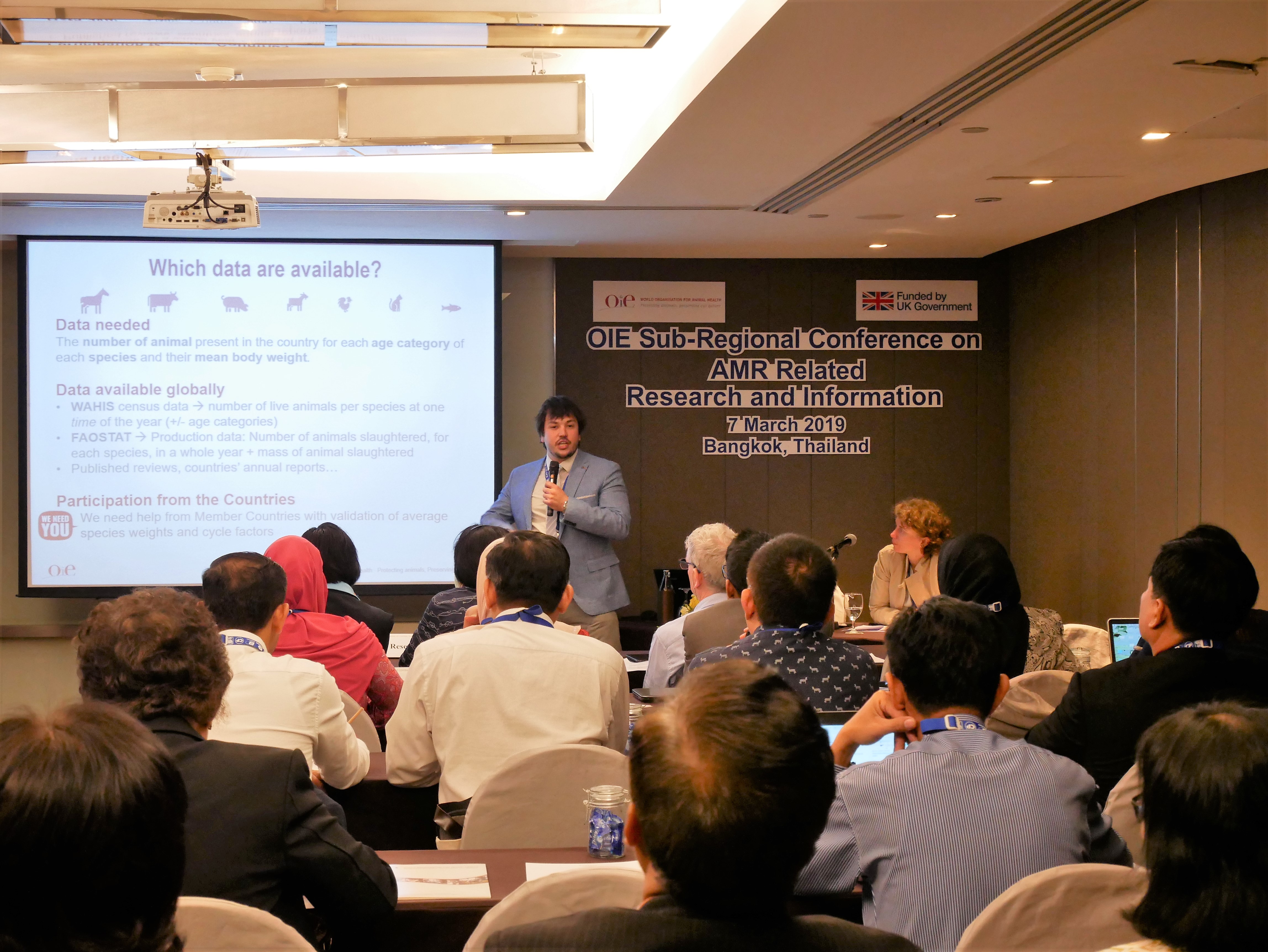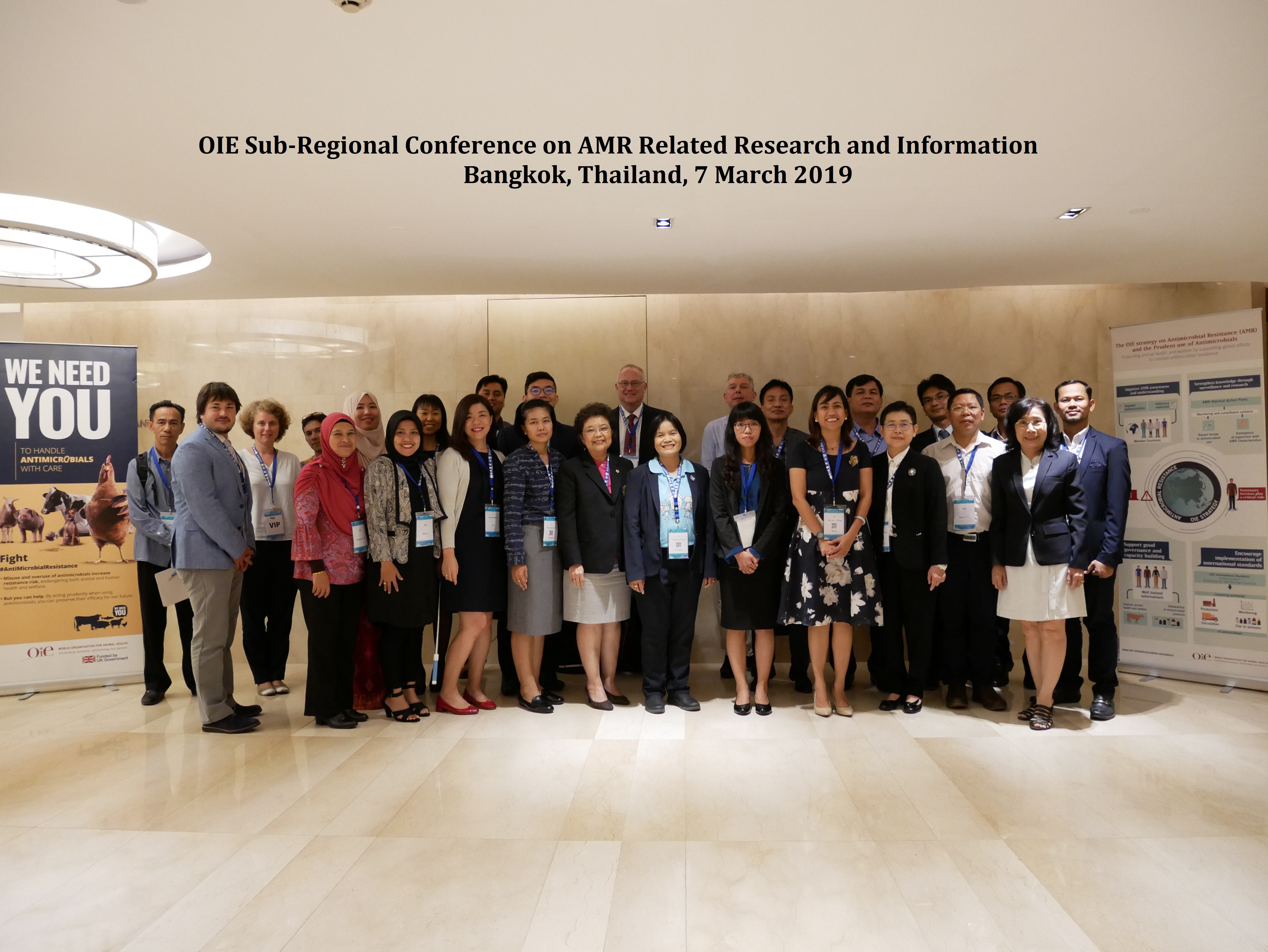


The OIE Sub-Regional Representation for South East Asia (OIE SRR-SEA) organised the Sub-Regional Conference on AMR Related Research and Information in conjunction with the 43th International Conference on Veterinary Science (ICVS) 2019 to support regional scientists and other stakeholders in communication and discussion of the latest research, policies, and best practices on AMR, and to provide a platform for discussion of a regional research agenda needed on AMR and AMU in animal health sector.
Participants attended the conference comprising the representatives from Cambodia, Indonesia, Lao PDR, Malaysia, Myanmar, Philippines, Singapore, Thailand, Vietnam, Mott MacDonald, ASEAN Veterinary Statutory Body Network (AVSBN), FAO, WHO and OIE, regional experts, an OIE expert, and some ICVS participants. Two representatives from each of the nine ASEAN Member States (AMS) included a responsible person on AMR/AMU research and a responsible person for AMR/AMU policy development.
The conference covered the areas of antimicrobial use (AMU), AMR, alternative to antimicrobials and funding sources for AMR activities. The OIE work on the global database on antimicrobial agents intended for use in animals, the practical aspects of antimicrobial stewardship in animal production and how to motivate farmers and veterinarians to change practices on AMU were described. The use of autogenous vaccine as an alternative to reduced loss and less antibiotics use in swine production in Thailand was demonstrated. An overview on emerging issues and research gaps in AMR and the environment was given, and the work of WHO on the Tricycle – Epi X project addressing three aspects of bacterial resistance – human health, food chain and the environment was detailed. The summary of AMR surveillance in South-East Asia, the updates on AMR/AMU research in Cambodia, Indonesia, Myanmar and Philippines as well as the monitoring and analyses of antimicrobial residues in food in Singapore were presented. The FAO work to support AMR/AMU research in South-East Asia including the main findings were explained. The Fleming Fund Grants Programme provided by the UK government for addressing AMR was informed. The last part of the conference was the panel discussion on development of a regional research agenda on AMR and AMU in animal health sector of ASEAN moderated by the OIE and FAO representatives. The panellists were the representatives of nine AMS involving in the AMR/AMU policy development.
The conference concluded that the One Health AMR surveillance should be conducted by harmonising surveillance programme of different agencies so that the surveillance results from animal farms can be compared to those from hospital and environment. Surveillance of AMR in aquaculture and environment should be initiated in all AMS. To develop a regional research agenda on AMR, the pathogens for research purposes should be prioritised particularly the foodborne pathogens and the results of research done so far in the region should be summarised. The social study to change behaviour of stakeholders on AMU practices should be included in the AMU research.
The outputs of the conference have provided valuable information for OIE, Member Countries and partners in planning future activities on AMR/AMU.

